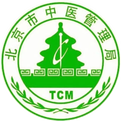This official WeChat account is managed by the Beijing Administration of Traditional Chinese Medicine. If you have not followed us yet, please click the blue “Capital TCM” above to follow.
Atractylodes (Cāngzhú) refers to the dried rhizomes of the perennial herbaceous plants Atractylodes lancea and Atractylodes macrocephala. It has a pungent, bitter, and warm nature, and it belongs to the Spleen and Stomach meridians. It has the functions of strengthening the Spleen, drying dampness, relieving depression, and dispelling filth. Before the Han Dynasty, Atractylodes and Bai Zhu (White Atractylodes) were not distinguished. The “Shennong Bencao Jing” only mentions the term ‘Zhu’, while the “Mingyi Bielu” first records the red and white Atractylodes. It was not until the “Zhenghe Bencao” that the names Cāng and Bái were proposed. Atractylodes is one of the commonly used medicines in clinical practice, and the author mainly utilizes its nine major effects in treatment.
Eliminating Dampness and Promoting Intestinal Health
The “Yixue Chuanxin Lu” states: “For narrow intestines, use Atractylodes,” meaning that for constipation with sticky stools, thin stools, and incomplete bowel movements occurring multiple times a day, Atractylodes is the remedy. For many years, I have used Atractylodes as the main medicine to treat this condition, and it has proven effective. For those with the above symptoms, or if they have not had a bowel movement for several days but the stools are not dry and are sticky, I always add this herb for treatment. If there are no other symptoms, I use the Pingwei San formula, increasing Atractylodes to 30 grams, and adding 3 grams of raw Da Huang (Rhubarb) and 10 grams of fried Bing Lang (Areca Nut), which has always yielded good results.
Strengthening the Spleen and Stopping Diarrhea
Atractylodes can both promote intestinal health and stop diarrhea due to its damp-drying properties. For those with Spleen Qi deficiency, poor transformation and transportation, and loose stools occurring multiple times a day, accompanied by fatigue and a pale tongue with a weak pulse, I often use the Si Jun Zi Tang (Four Gentlemen Decoction) with an additional 20 grams of Atractylodes, along with Bai Bian Dou (Lablab Bean) and fried Shan Yao (Chinese Yam) as the basic formula, adjusting according to the symptoms, which has shown satisfactory results. For those with Qi sinking, I add 3 grams of Sheng Ma (Cimicifuga) and 3 grams of Chai Hu (Bupleurum), and 20-30 grams of Sheng Huang Qi (Astragalus); for those with hidden pain in the navel, I add 10 grams of Wu Yao (Lindera) and 10 grams of Bai Zhi (Angelica Dahurica).
Drying Dampness and Opening the Appetite
Atractylodes has a fragrant and pungent flavor, dispelling filth and preventing epidemics, which can stimulate appetite and promote digestion. The “Mingyi Bielu” states that it “warms the stomach and promotes appetite,” which is indeed true. For those with fullness and distension in the chest and abdomen, poor appetite, frequent nausea, and belching, I often combine this herb with Sha Ren (Amomum), Huo Xiang (Agastache), Mu Xiang (Aucklandia), Ban Xia (Pinellia), and Jiao San Xian (Fried Three Immortals), which yields promising results.
Drying Dampness and Stopping Vaginal Discharge
Women who are affected by dampness often suffer from vaginal discharge, and Atractylodes is a key herb for treating dampness-related discharge. If there are no accompanying cold or heat symptoms, I use the Fu Qing Zhu Wan (Fu Qing’s Complete Discharge Decoction) with this herb combined with Bai Shao (White Peony), Ren Shen (Ginseng), Shan Yao (Chinese Yam), and Chai Hu (Bupleurum). If there is heat, I add Huang Bai (Phellodendron) and Ku Shen (Sophora); if there is cold dampness, I add Xiao Hui Xiang (Fennel) and Wu Yao (Lindera). Additionally, adding Xian He Cao (Agrimony) and Ji Guo Hua (Cockscomb Flower) to this formula can enhance its efficacy.
Treating Gastric Prolapse
The famous physician Xu Shuwei from the Song Dynasty suffered from a peculiar illness in his youth due to studying late at night and drinking alcohol before bed. Years later, he felt a constant gurgling in his stomach, bloating under his ribs, reduced appetite, and would vomit bitter and astringent gastric fluid every ten days or so. In summer, only his right side would sweat. After consulting many famous doctors without success, he realized it was due to “dampness obstructing the stomach”. Following the principle of “using precise medicine”, he chose Atractylodes as the main herb, using one pound of Atractylodes, fifteen dates, and raw sesame oil to make small pills, taking 50 pills daily, later increasing to 100-200 pills per day. After several months, his condition gradually improved until he was cured. Regarding the pathogenesis of this illness, Xu Shuwei believed it was due to “stagnation of fluids in the diaphragm… resulting in a phlegm sac”. To treat this condition, he stated, “It is best to dry the Spleen to overcome dampness, and to strengthen the earth to fill the cavity, then the disease will be eliminated.” Thus, he used only Atractylodes for three months, and the illness was resolved. The national medicine master Zhu Liangchun derived the principle of using Atractylodes for gastric prolapse from this case, achieving good results. I learned from this experience and followed suit, achieving good results. It is important to note that Atractylodes is best taken in powdered form alone, twice daily at 6 grams, combined with Bu Zhong Yi Qi Tang (Tonifying the Middle and Augmenting Qi Decoction) with 30 grams of Zhi Shi (Bitter Orange), which has shown excellent results.
Eliminating Dampness and Alleviating Bi Syndrome
Atractylodes is pungent, dispersing, warm, and drying, and it dispels wind and dampness. It is often used in combination with Qiang Huo (Notopterygium), Du Huo (Angelica Pubescens), and Wei Ling Xian (Clematis) to treat wind-damp Bi syndrome. Due to its ability to dispel wind and dampness, it is particularly suitable for symptoms of wind-dampness on the surface. For example, the Shen Shu San from the “Heji Ju Fang” uses Atractylodes as the monarch herb, combined with Qiang Huo, Bai Zhi, and Fang Feng (Siler), to treat headaches, body aches, and stiffness of the neck, accompanied by chills, fever, and absence of sweating.
Lowering Blood Sugar
Modern research has found that Atractylodes has a blood sugar-lowering effect, and it can also reduce muscle glycogen and liver glycogen, inhibiting glycogen production, thereby reducing oxygen consumption and increasing blood lactate levels. In clinical applications, combining it with Xuan Shen (Scrophularia) enhances the blood sugar-lowering effect. For example, Atractylodes combined with Huang Qi (Astragalus), Sha Shen (Glehnia), Tian Dong (Asparagus), Mai Dong (Ophiopogon), Xuan Shen, Sheng Di (Rehmannia), Shan Yu Rou (Cornelian Cherry), Shan Yao (Chinese Yam), and Wu Wei Zi (Schisandra) forms the Jin Shui Xiang Sheng Yin, which treats type 2 diabetes with Qi and Yin deficiency, achieving an efficacy rate of up to 92%, making it worth trying in clinical practice.
Treating Night Blindness and Dry Skin
Atractylodes contains a large amount of vitamin A, which is effective in treating night blindness and corneal softening, as reported in multiple studies. Nowadays, night blindness and corneal softening are rarely treated with traditional Chinese medicine, but when treating skin diseases, combining it with vitamin A can play an auxiliary role. Therefore, I often use Atractylodes in treating blood deficiency and wind-dry skin diseases, such as dry eczema, neurodermatitis, and senile pruritus, to achieve an auxiliary effect. Some data report that using 1000 grams each of Atractylodes and Ji Xue Teng (Spatholobus), and 500 grams each of Dang Gui (Angelica Sinensis) and Yi Yi Ren (Job’s Tears) to make a paste, has an efficacy rate of over 80% in treating ichthyosis.
Treating Polycystic Ovary Syndrome
Some have used Atractylodes and Xiang Fu (Cyperus) combined with Wen Dan Tang (Warming the Gallbladder Decoction), along with Chuan Xiong (Chuanxiong), Dang Gui, and fried Shan Zha (Hawthorn) to treat polycystic ovary syndrome with effective results. The “Bencao Gangmu” states that Atractylodes “treats damp phlegm retention, or phlegm and blood stasis forming sacs”. The pathogenesis of polycystic ovary syndrome is indeed related to the obstruction of phlegm, dampness, and blood stasis, thus making it effective for treatment. In clinical practice, for patients with significant phlegm and dampness, I have used this formula combined with kidney-tonifying and liver-soothing herbs, achieving effective treatment, restoring ovulation, and resulting in successful pregnancies.
Atractylodes is used in decoctions at 10-15 grams and in pills or powders at 3-6 grams. It should be avoided by those with Yin deficiency and internal heat, or those with Qi deficiency and excessive sweating.
Atractylodes and Bai Zhu are both rhizomes of plants in the Atractylodes genus of the Asteraceae family, both having the effect of strengthening the Spleen and drying dampness, treating Spleen deficiency with excess dampness. However, Bai Zhu not only has the effect of strengthening the Spleen and drying dampness but also tonifies Qi, stops sweating, and calms the fetus, making it more suitable for deficiency conditions; whereas Atractylodes primarily dries dampness and strengthens the Spleen, also promoting sweating and dispelling pathogens, thus being more suitable for excess conditions.
Content Source: China Traditional Chinese Medicine NewsAuthor: Wang Qingguo, Beijing University of Chinese MedicineEditor: Wang DiReviewer: Zhu Luyun
“Capital TCM” ID:
bjtcm010
Official WeChat of the Beijing Administration of Traditional Chinese Medicine
Long press to recognize the QR code on the left, follow us
We welcome your submissions, please send to [email protected]

